5 facts about the Samara Metro (PHOTOS)
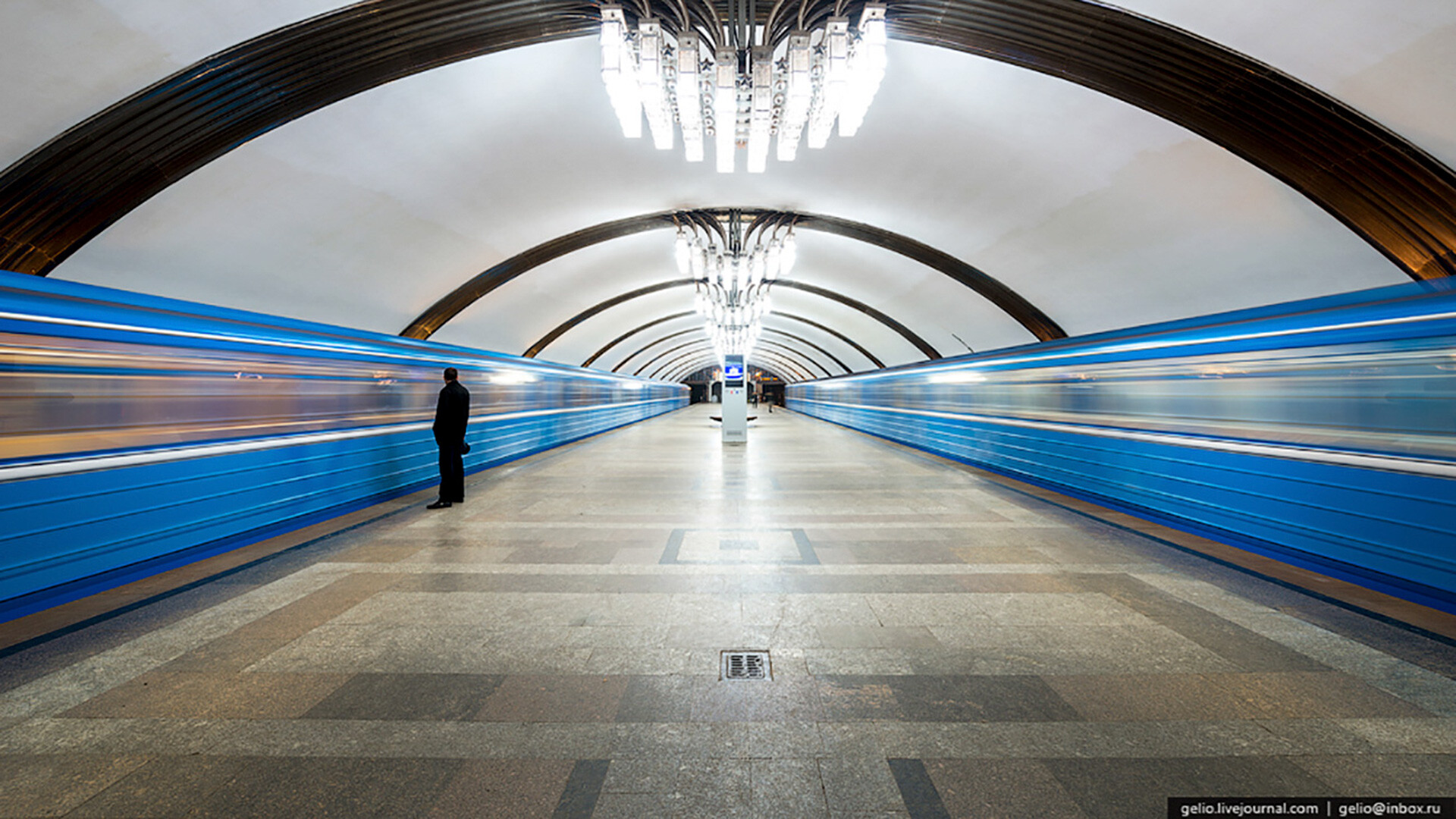
The subway system in the industrial city of Kuybyshev, as Samara used to be called in Soviet times, was planned to be built before World War II. But, the project design and construction dragged on for decades. Kuybyshev Metro was opened only in 1987. By that time, subway systems already existed in four cities of the Russian Soviet Federative Socialist Republic — Moscow, Leningrad (now St. Petersburg), Gorky (now Nizhny Novgorod) and Novosibirsk.
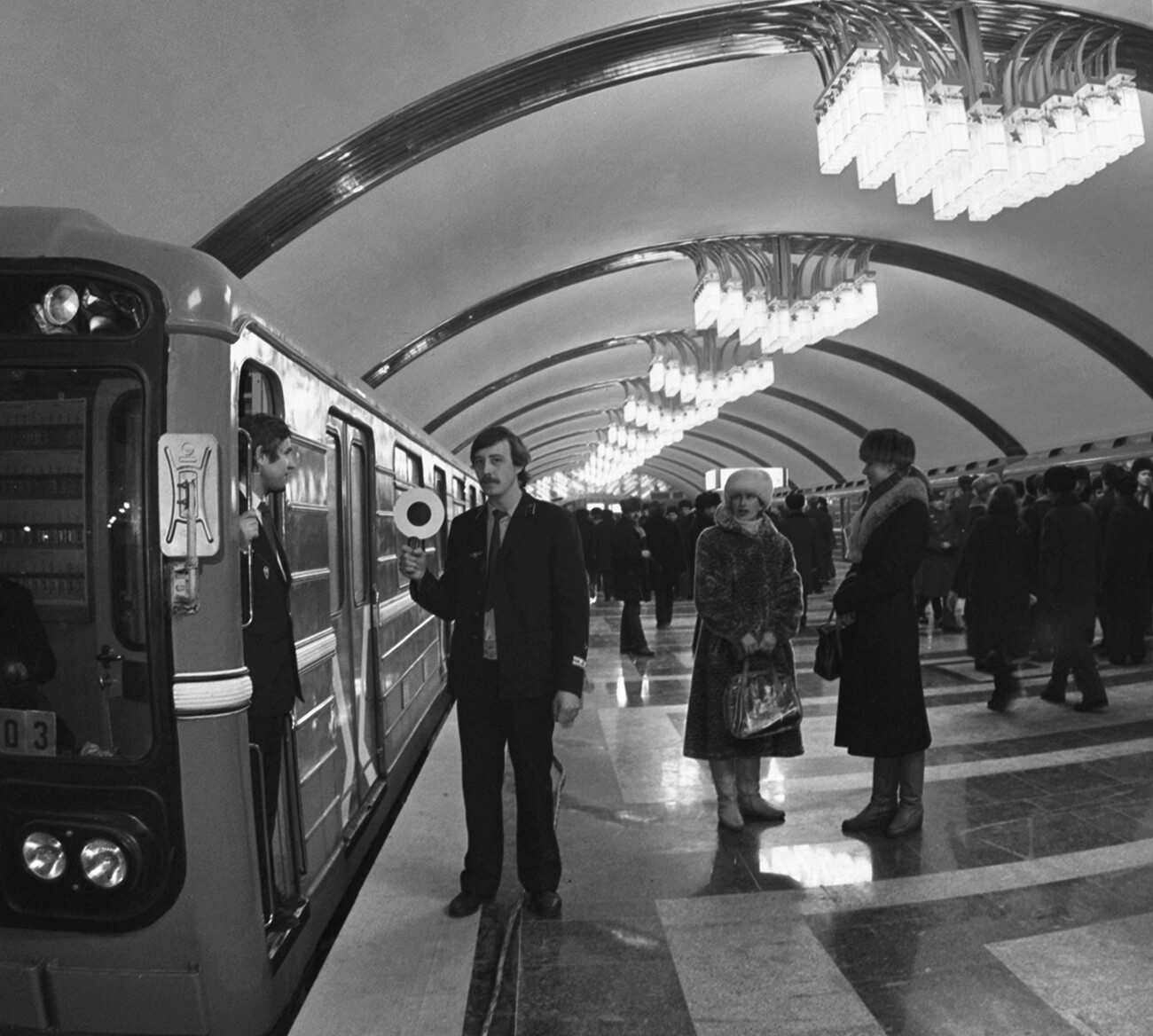 Kuybyshev metro was opened on December 26, 1987. At the 'Pobeda' station
Kuybyshev metro was opened on December 26, 1987. At the 'Pobeda' station
Here's what you need to know about the Samara subway system that became the fifth in Russia (and the tenth in the whole Soviet Union).
1. It only consists of one line
You can't get lost in the Samara Metro, as there is only one line! It consists of 10 stations with a total length of 11.6 km. It takes just 22 minutes and 38 rubles (approx. $0.43) to ride the line from one end to the other.
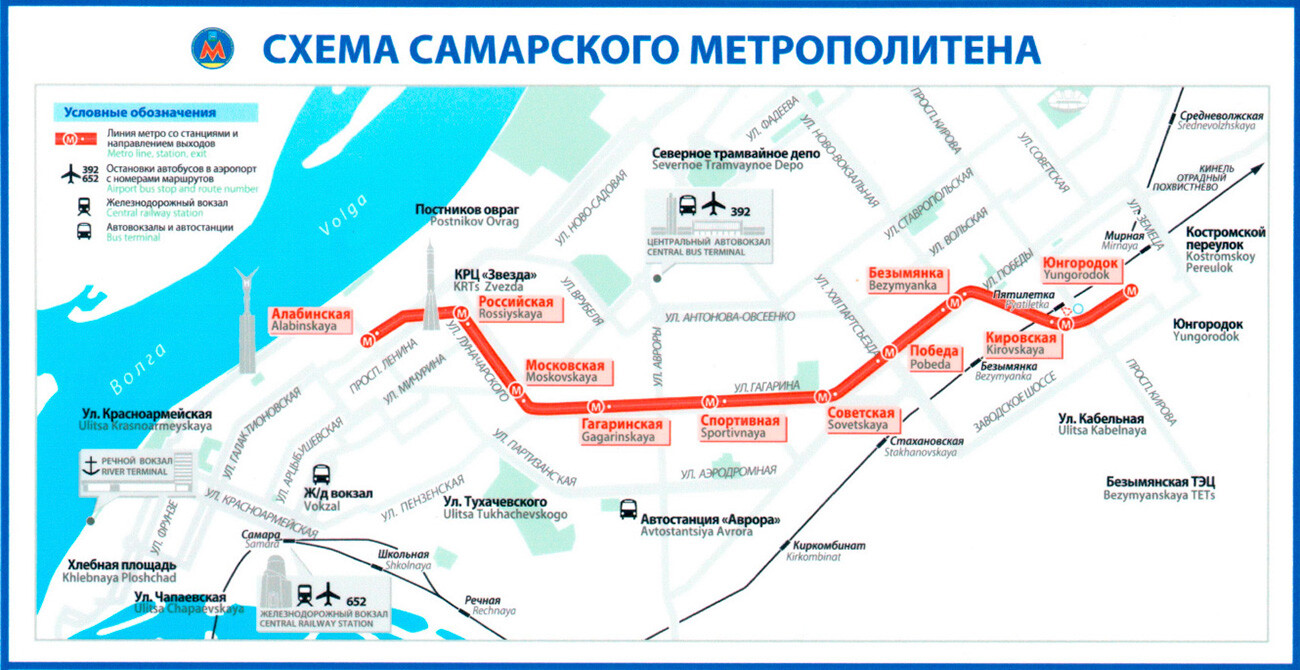 Samara's metro map
Samara's metro map
Samara is an industrial city, stretched quite a bit along the Volga River. The subway does not reach all districts and is not close to the center. This is, however, not accidental. The original idea was to connect industrial districts and residential neighborhoods where factory employees lived, so that it would be more convenient for them to get from home to work and back.
Several new stations of the line are under construction right now and there are also plans to open a second line that will run to the city’s main railway station.
2. Most of the stations are shallow
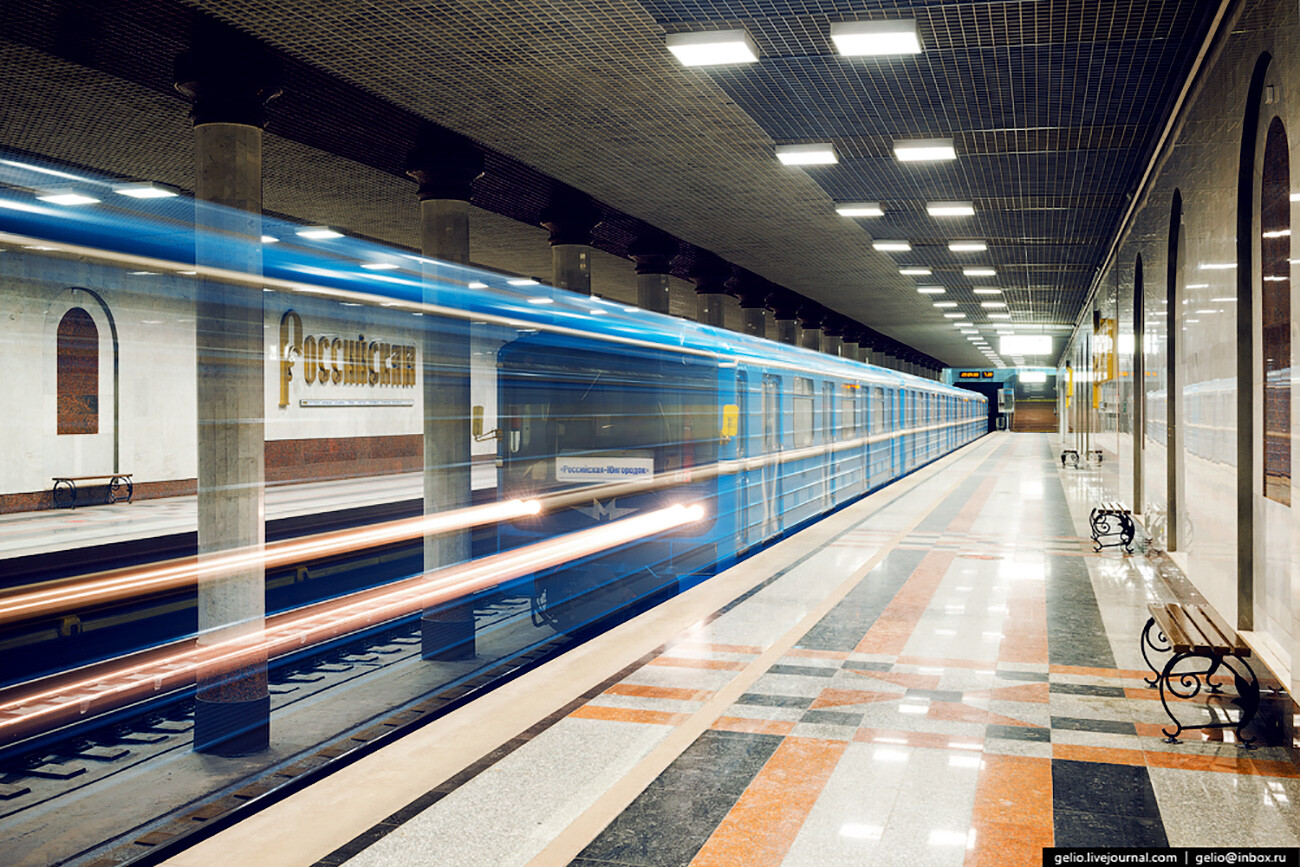 'Rossiyskaya' station
'Rossiyskaya' station
Those who have been to the Moscow and St. Petersburg subways and remember having to ride down an really long escalators will be surprised: in Samara, the stations are very shallow. Just to compare: Russia's deepest subway station, ‘Admiralteyskaya’ in St. Petersburg, is 86 meters deep, while Samara's deepest station, ‘Gagarinskaya’ is only 17.8 meters deep.
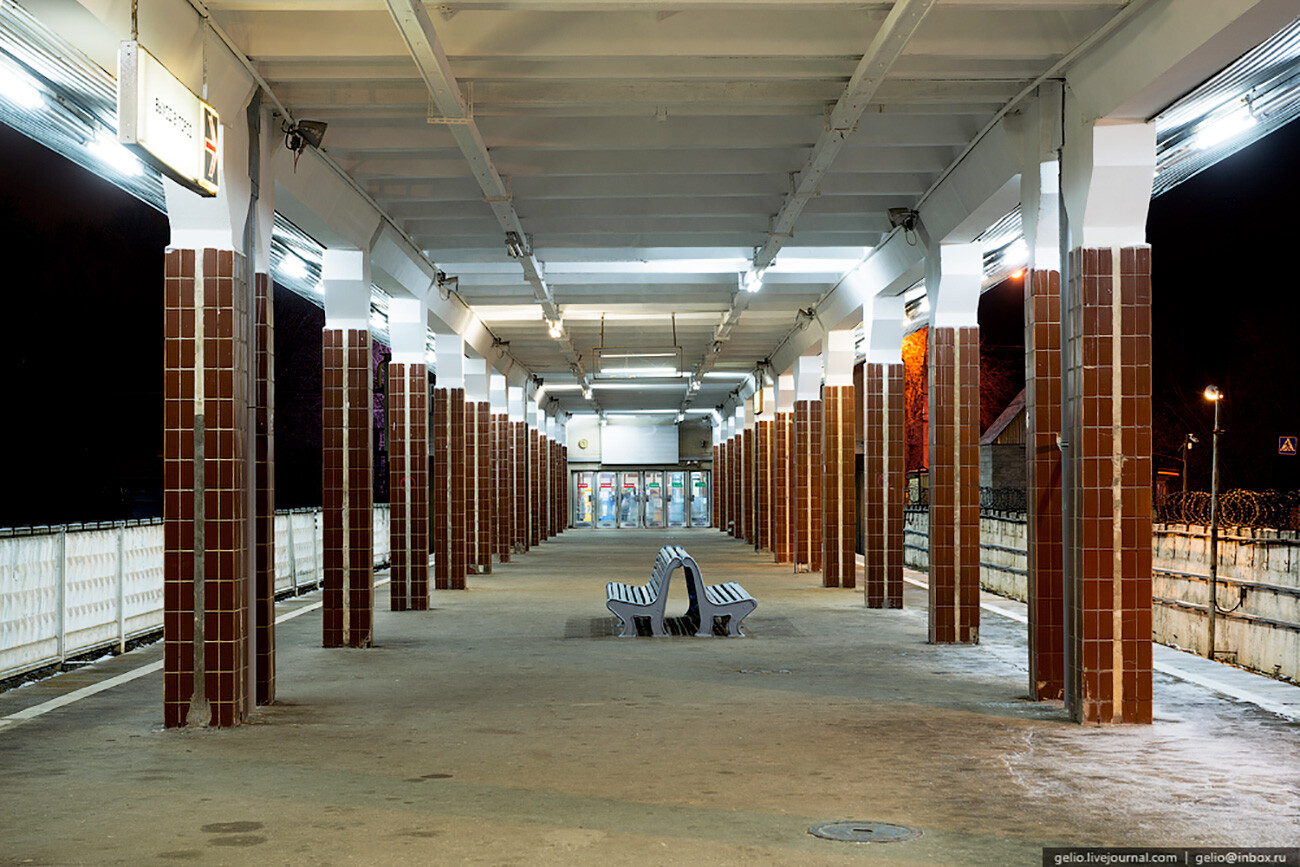 'Yungorodok' station
'Yungorodok' station
There are only four short escalators for nine of the stations, while the rest make do with flights of stairs. ‘Yungorodok’, the final subway station, is above ground.
3. The stations are decorated with granite & marble
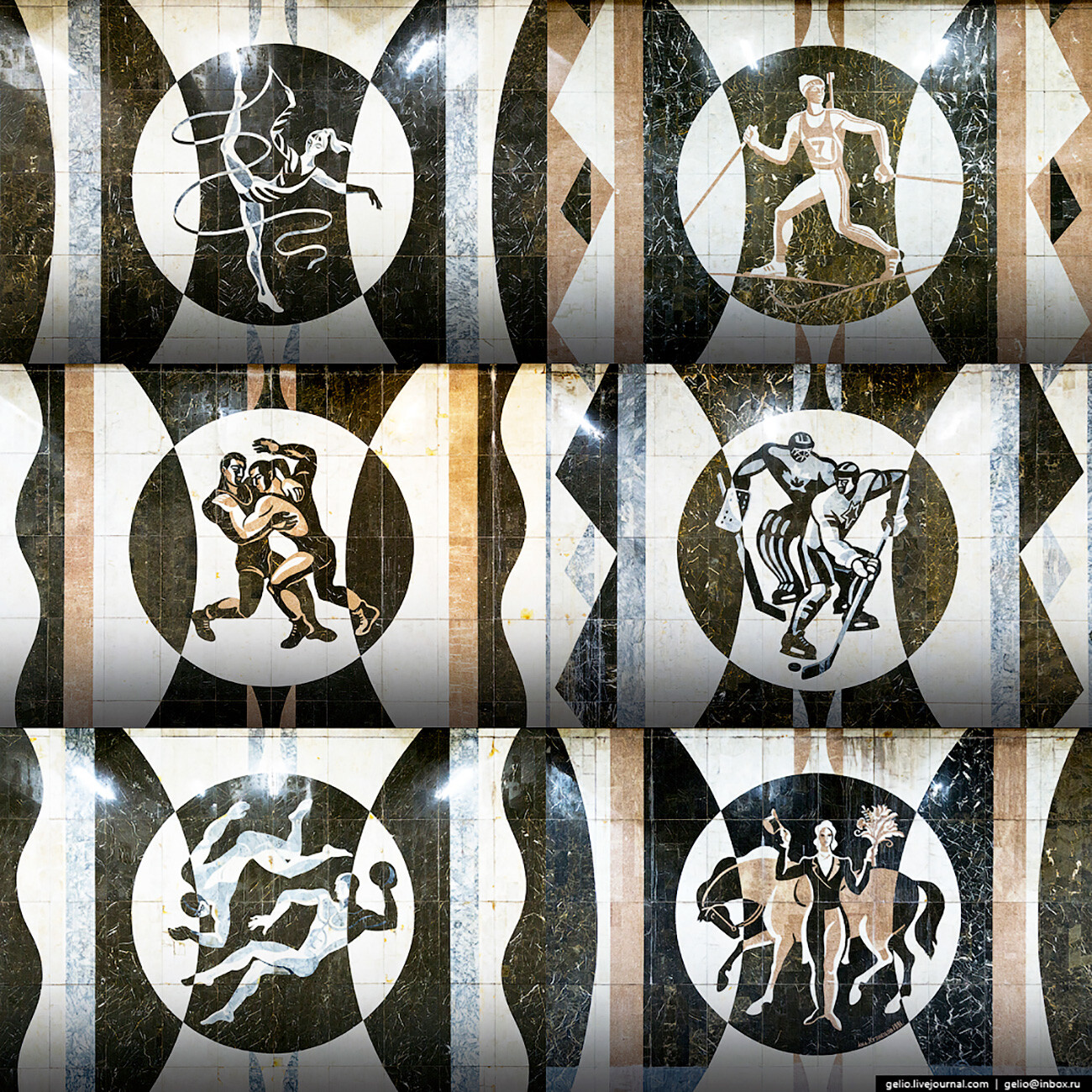 Mosaics at the 'Sportivnaya' station
Mosaics at the 'Sportivnaya' station
Similarly to the subways of other cities built during the Soviet era, the best materials were used in the decoration of the Samara Metro. Even stations with modest minimalist design were fitted with natural stone.
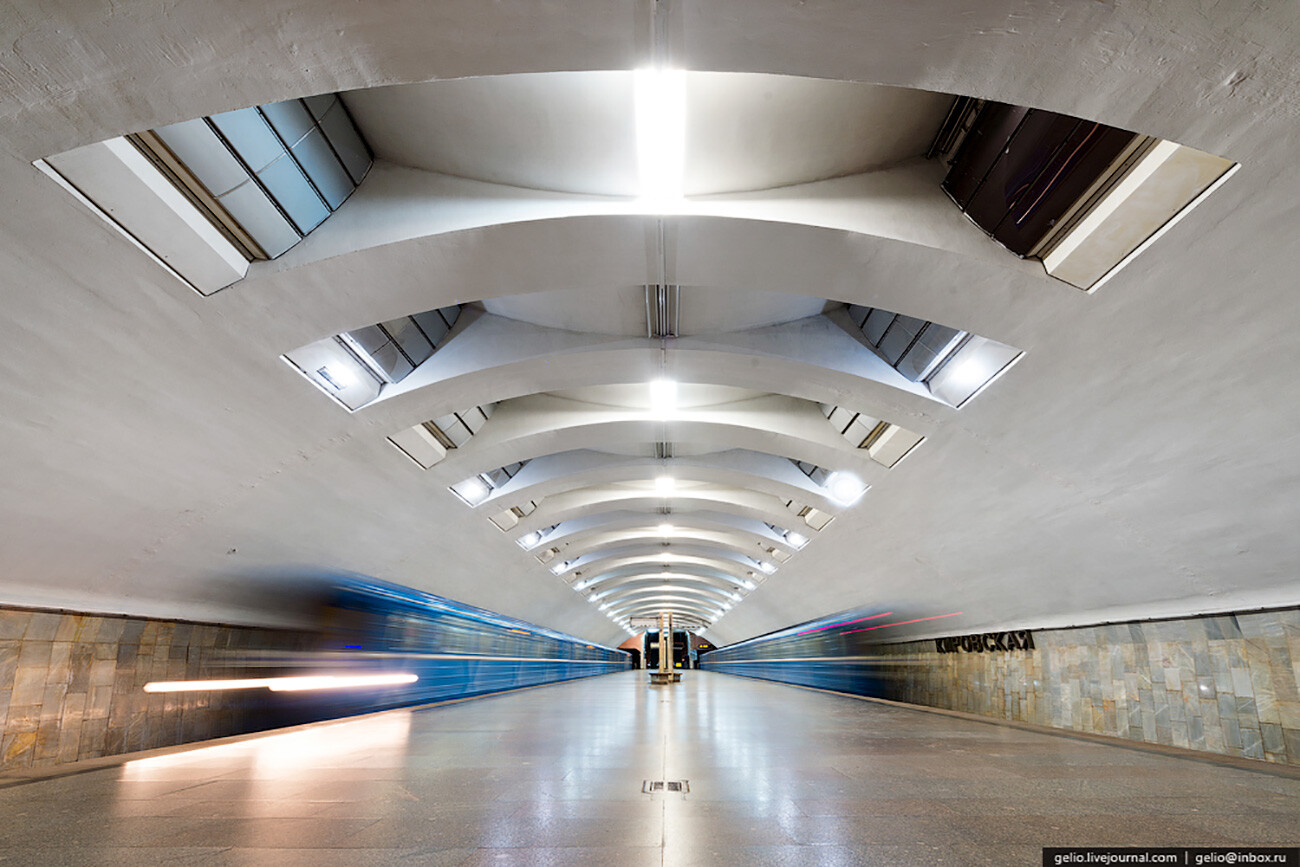 'Kirovskaya' station
'Kirovskaya' station
For example, at Kirovskaya Station, the floor is lined with beige granite, while the walls are covered with special Uzbek marble called ‘gazgan’, with a color gradient from cooler to warmer shades.
4. There are stations dedicated to the World War II & space exploration
World War II didn't reach the city, but the theme of Victory was very important to the local residents, as many of them were rear toilers, working in factories and providing for the front. Many factories from western Soviet regions were evacuated to Samara (even a reserve bunker for Stalin was built there).
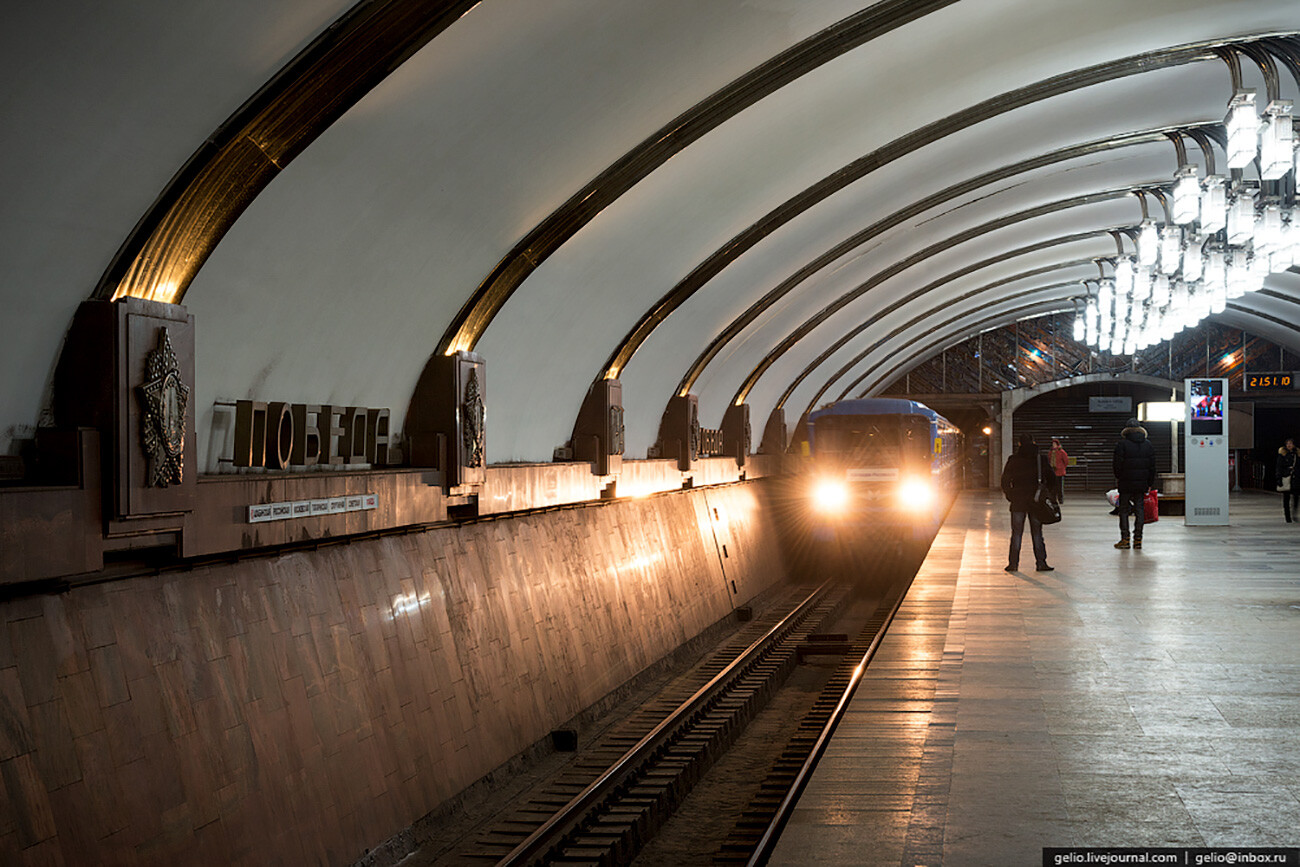 'Pobeda' station
'Pobeda' station
One of the four first subway stations was named ‘Pobeda’ (literally 'Victory') and its décor refers specifically to this iconic event. In the middle of the ceiling, lamps are installed in the shape of a pyramid resembling a festive salute. The effect is enhanced by the fact that the light from them is reflected along the steel strips covering the vaults of the station. And, at their base, at passenger eye level, the Victory Orders are installed.
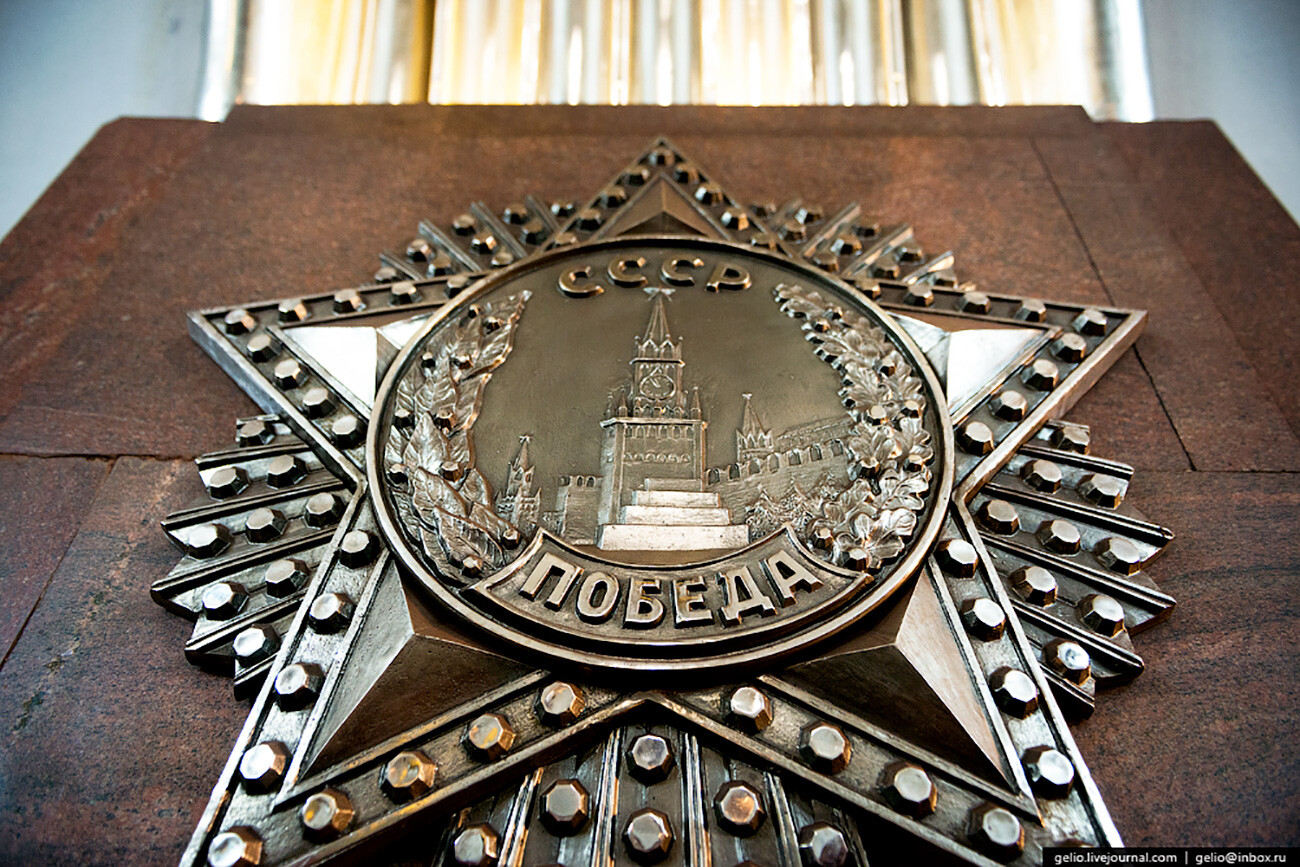 'Pobeda' station
'Pobeda' station
‘Bezymyanka’ station (its name coming from the district in which it's located) is dedicated to the rear workers. On the walls, made out of gray marble, mosaics with aviation scenes have been laid: the Samara Aviation Technical School, the Palace of Sports of the Aviation Plant and the plant itself are located nearby.
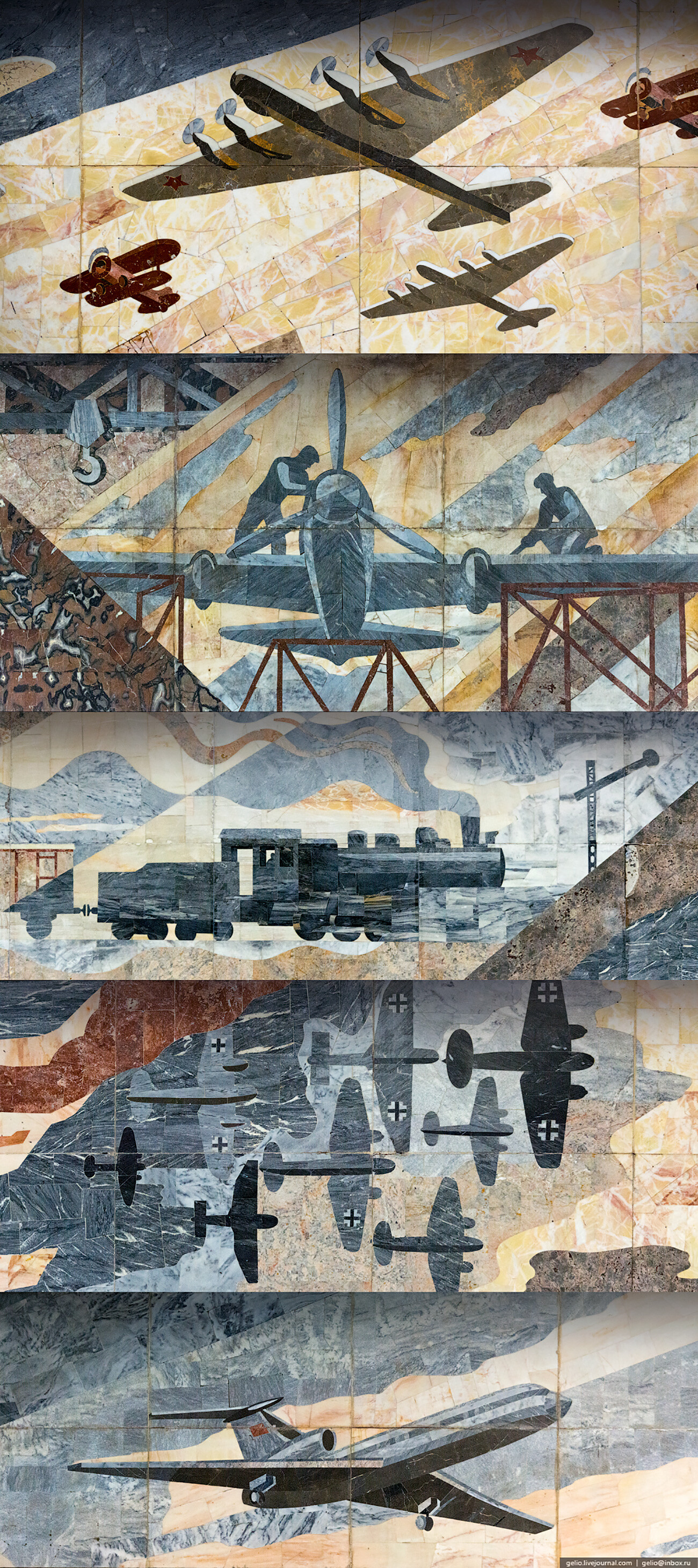 Mosaics at the 'Bezymyanka' station
Mosaics at the 'Bezymyanka' station
In 1993, one of the most beautiful and unusual subway stations was opened on Gagarin Avenue, aptly called ‘Gagarinskaya’. Samara is considered the unspoken “space capital” of Russia: many spacecraft and ‘Soyuz’ launch vehicles have been manufactured there.
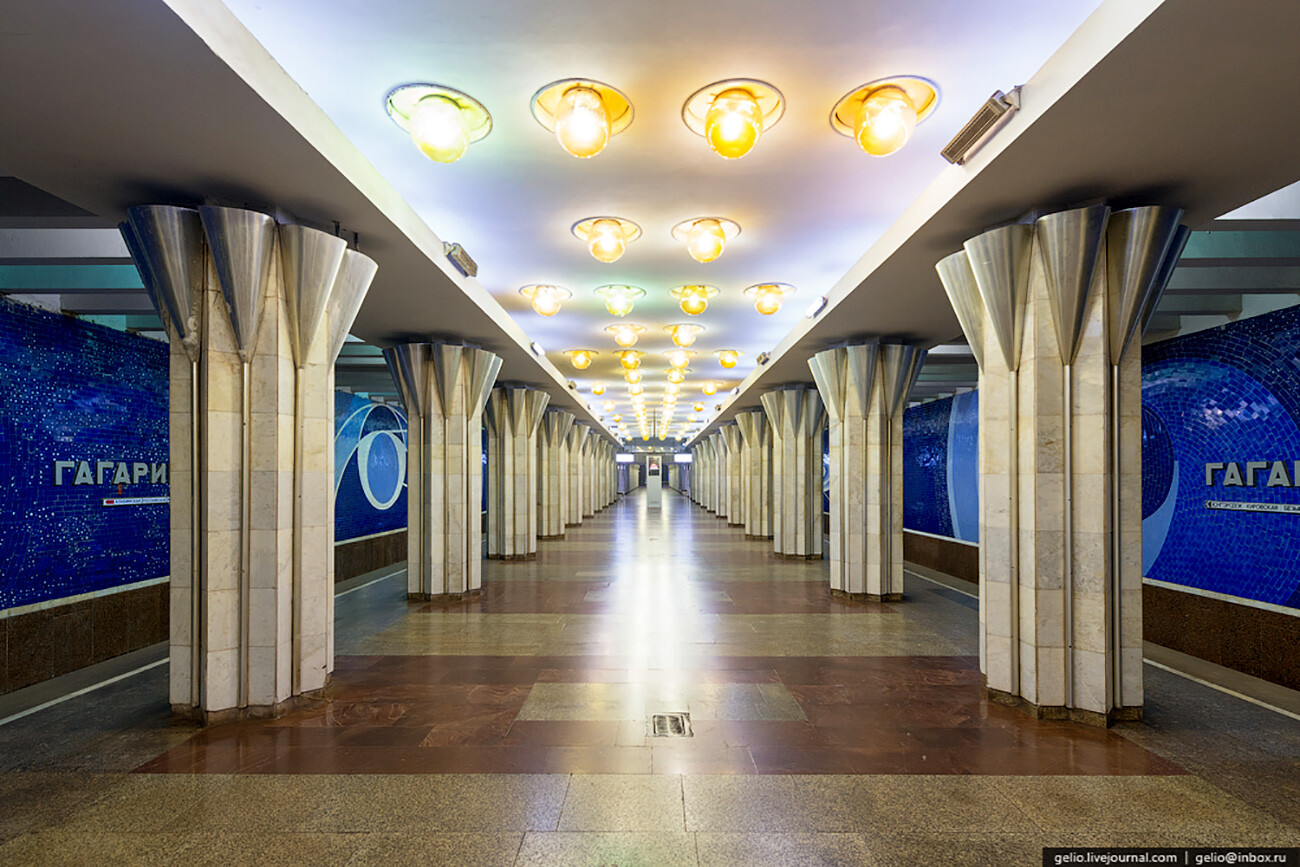 'Gagarinskaya' station
'Gagarinskaya' station
The columns resemble the shape of a rocket's tail and the round yellow lamps resemble the bulbs of a spaceship.
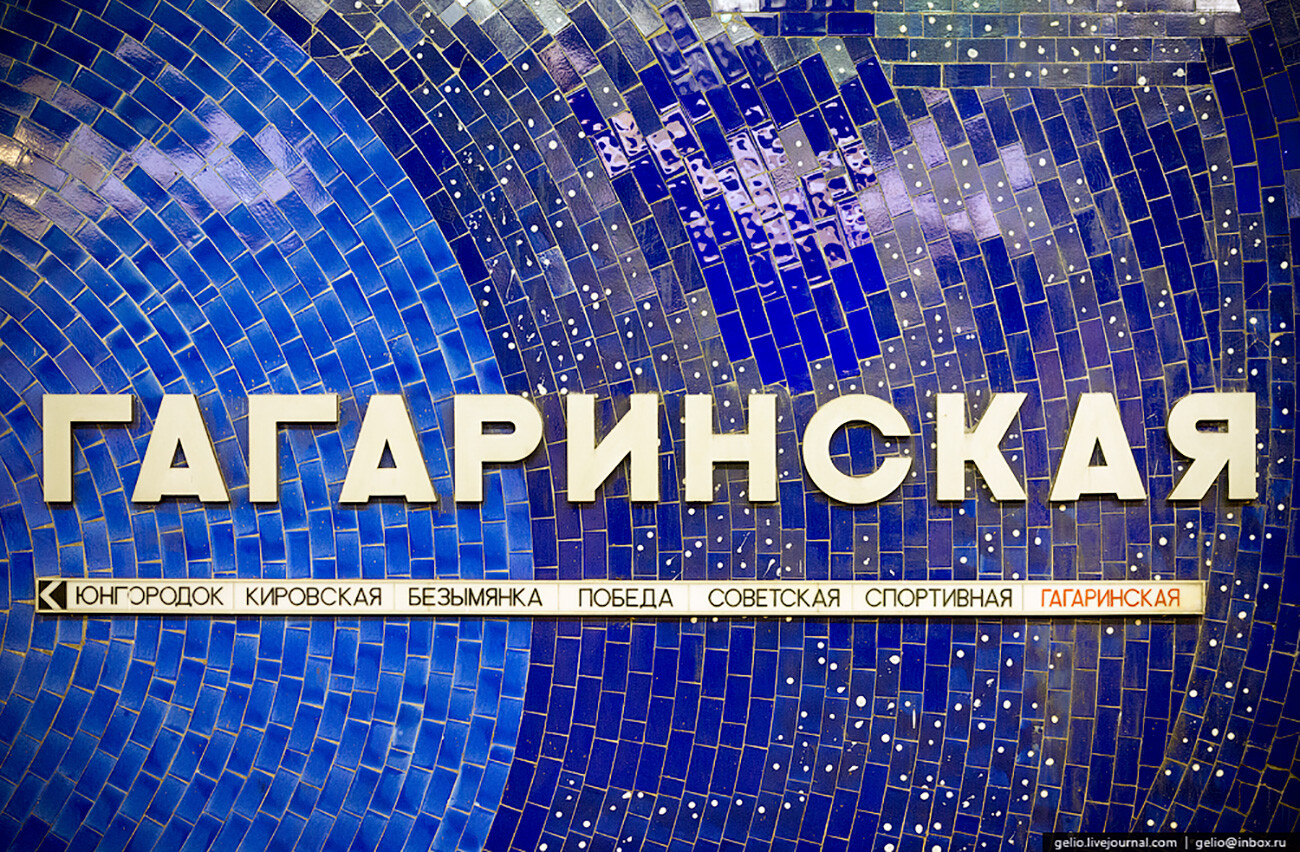 'Gagarinskaya' station
'Gagarinskaya' station
The walls, meanwhile, are decorated with dark blue space-themed mosaics, as if passengers themselves have flown into interstellar space!
5. There is a reference to Art Nouveau urban architecture
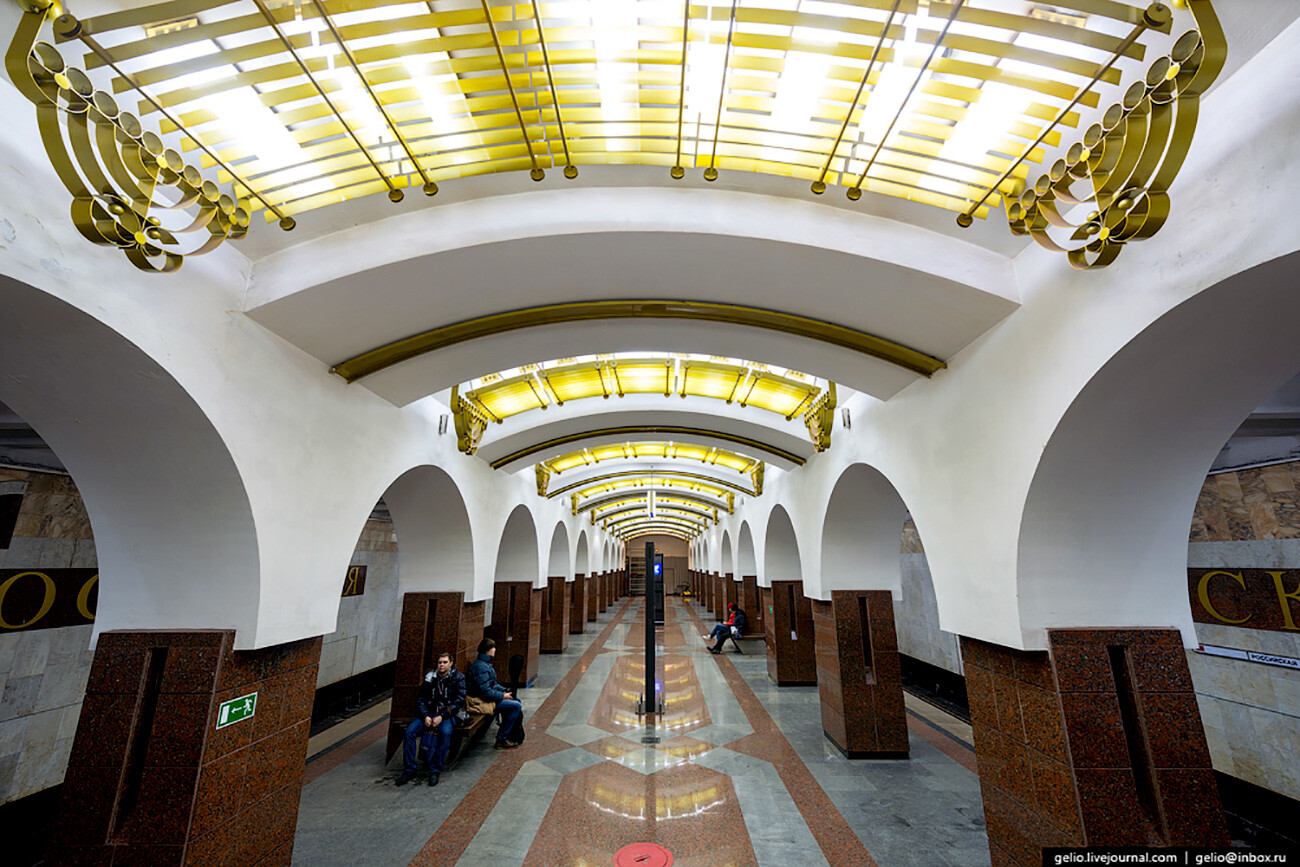 'Moskovskaya' station
'Moskovskaya' station
Walking around Samara, you can encounter an incredible beauty of buildings and mansions in the Art Nouveau style. Oval windows, floral patterns, non-standard forms. In the late 19th-early 20th century, wealthy Samara merchants built themselves such houses in the most fashionable and sophisticated architectural style and many of them have survived to this day.
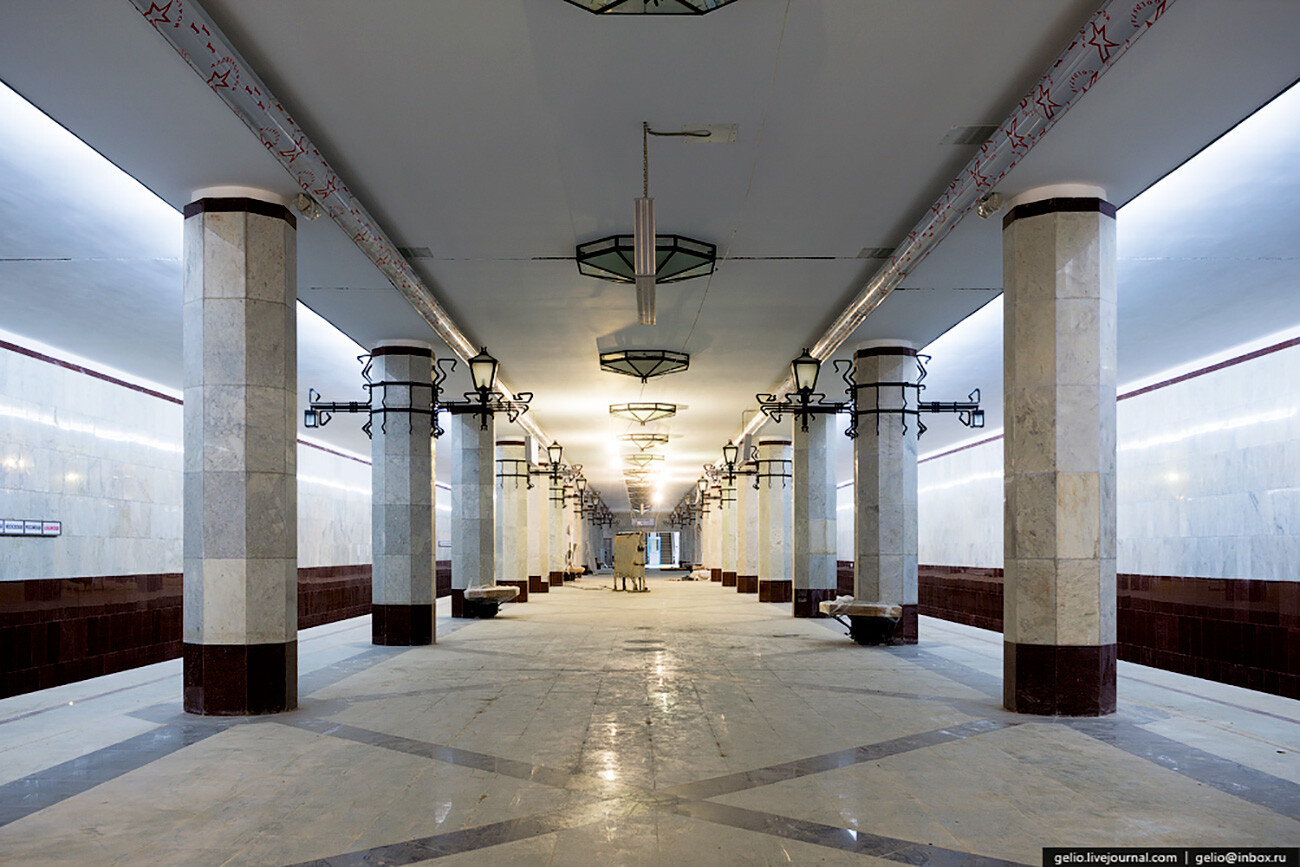 'Alabinskaya' station
'Alabinskaya' station
A tribute to this milestone in the city's history is the ‘Alabinskaya’ subway station, opened in 2015. Its décor is reminiscent of old Samara and its Art Nouveau. The station is lined with polished light gray marble and the wrought iron lamps are made in the style of 19th-century lanterns.
Take a closer look at the Samara Metro with our video from our special project 'Russia: 85 adventures'.


